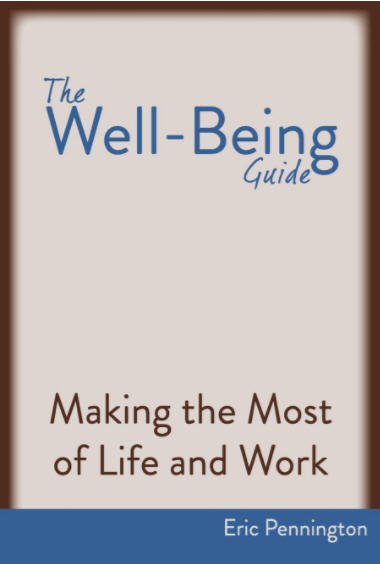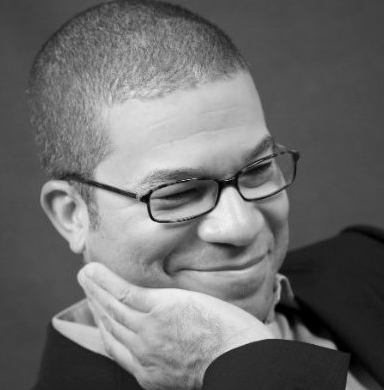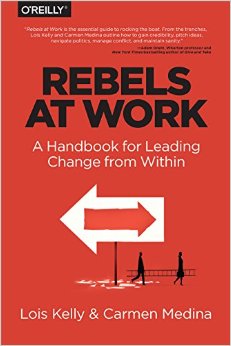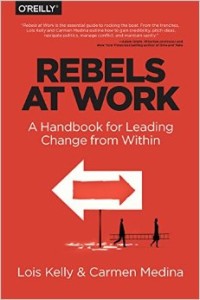The Well-Being Guide
The Well-Being Guide is now officially out. If you haven’t picked up a copy yet, you can here.
I’m writing today to explain why I wrote the book and to ask for your help. So here goes:
- I wrote the book for people (most all of us) who are living much of their lives at work. You know much of my journey, so it’s probably not a surprise to read that. I want the book to be a tool to help, encourage, reflect, and even disrupt.
- I need your help to spread the word. If the book resonates with you, then I need help in getting others to “get what you got.” The tools to do the spreading range from social media to a direct conversation with a friend needing some direction.
- My main goal, is to get employers (small to large) to buy the book for their employees. I can provide a decision-maker with a copy of the book and the organization can buy the book direct for volume pricing.
Reach out to me directly (comments section of the blog, email or phone) with questions or to discuss how you can help.
I appreciate you all.
An Update on Me
Much has happened since my last post. Here’s an update on me:
- I’ve been seeing a counselor/psychologist since March. Finding and working with him, has helped me immensely. The work we’re doing together is producing clarity, crossroads and breakthrough. I will reveal more in the coming weeks
- I found out, personally, how dangerous stress can be. In my case, it was about carrying too much of it. Working with a counselor has helped. I also have had to be more “on-purpose” with self-care (exercise, time with God, mindfulness, etc.). One of the negative impacts coming out for me was my blood sugar levels (diabetes related). In my last check-up, my levels were the highest they’d been in 20 years. My doctor pointed to stress. She also expressed her confidence in my turn around as well. The idea that I would do something about my state. It was sobering to find out that many of her patients stay in the “tangles” and don’t come out.
- The new book is going through cover-design and formatting. It should be available for pre-order soon. This period of my life has made me more grateful for the gift of writing.
- I’ve learned, and learning, that not everyone can be allowed to continue on the journey. This includes those you love. For me, maybe it’s temporary, or it could be permanent. This is tough work. You want the person to stay, but they won’t let go of things that will only lead to heartbreak. My Rubicon.
I’m sure there is more to tell, but I’ll stop here. Stay well.
A New Approach to HIIT
In the last month I suffered an injury to my left Achilles and it’s compromised my ability to run and do some other types of exercise I normally do. A few years ago I started doing high intensity interval training (HIIT) and it has made a measurable difference in my exercise habits. Much of the inspiration has come from the work of Dr. Doug McGuff. I found him by way of Peak Fitness. He was the catalyst for taking a new approach to HIIT.
I had tried Dr. Mcguff’s process with weights before, but I never tried it with full commitment. Funny how an injury can get your attention. Dr. McGuff calls his approach with weights, Super Slow. You can click here to review the transcript of an interview with Dr. McGuff where he discusses in detail his methodology and the science behind it. I just started this program about two weeks ago and I’m noticing that many of the indications he gives in his interview are true.
Dr. McGuff’s approach is that you’re going to do high intensity interval training not more than two times per week, at 15 minutes a session. When I first read about this it made me scratch my head. However, I’ve never had more of an intense workout than using this type of HIIT. Dr. McGuff has also written a book on the subject, titled Body by Science. As noted above, I’m early on, but at this point it’s kind of undeniable to me. Tim Ferriss’ book, The Four Hour Body is another source to look at on the subject. Dr. McGuff consulted on the content with Tim as well.
I will keep you updated on my progress and certainly I hope to it some point recover from this Achilles issue. I do want to continue my running at some level. This current frame has taught me that variety is best in exercise because things change, as they always do. HIIT is a great process to meet the changes head on.
Excerpt From the New Book
As I get closer to finishing my second book, I wanted to share an excerpt. I’ll save the details around the concept/premise of the book. The working title is;; Stop for a Moment: 60 Seconds to Look Around and Find What Matters Most.
Look for a late summer, early fall release. Enjoy!
Children
Eileen and I had been married for over 7 years before we had our first child. As is it is with life, some of that was planned, and some was not. We weren’t entirely sold on being parents in the beginning, so we decided to wait a few years. As the years passed, we began to feel the longing. We both figured it would be an immediate thing. It was not an immediate thing. We waited 3 ½ years before Lauren arrived. The process of waiting, medical testing and feelings of doubt was tough.
I stopped giving advice on parenting after our first. Especially, since I felt so ill-equipped to be a father. Later on you realize most parents feel this way. It was tough for me. My dad was the only model for human fatherhood and he never said much to me, so I felt alone to figure it out. Fortunately, my relationship with God helped immensely. One thing was clear then, and now, there is no such thing as a perfect parent.
After my son was born in late 2001, I started realizing the power of influence. I came to understand that often your kid’s behavior and view of the world is heavily based on what they see in you. That’s one of the biggest reasons I value forgiveness. You never know how important forgiveness is until you do something that you deeply regret. I’ve had many lessons in this area.
As my kids are now in their teens, I’ve discovered the need to let them know I’m listening. I make sure to verbalize my feelings for them, and to let them know that I pray for them everyday. I may miss the boat on college planning or a homework assignment, but they will know how important they are to me in the areas that matter most.
Questions to Think About:
- Do your children know they are loved? Does your home echo the sound of “I love you?”
- Do you spend too much time trying to teach, versus listen, to discover and encourage?
- Are you modeling behaviors that would produce light or darkness?
5 Questions with Jim Mitchem, Author of Minor King
This is the first time I’ve interviewed a novelist. It’s a special treat for me because I’ve been influenced and encouraged by Jim Mitchem’s writing for some time. Minor King is his first novel and its a fine read. Enjoy!
Was there an “a-ha” moment when you decided you had to write Minor King?
Like the main character in the book, I’d been mulling a novel for a while. But over the last decade my life had become pretty busy, and I couldn’t focus long enough for clean, contiguous thought. Over the years I’d started a lot of long-form stories, and had files full of ideas, but nothing grabbed my interest enough to commit to the sacrifice necessary to finish a novel. That is, until the ending of Minor King occurred to me. When that happened, I knew that I had a special story. So essentially, I wrote Minor King in reverse.
The main character, Jim, experienced a lot of pain and tough roads. Why’d you shape him this way?
Minor King is written in the roman à clef style. Which means that it’s loosely based on my own life. Many of the struggles that the protagonist, Jim Christianson, faces are actually part of my own personal story. As a result, and because I’ve written about some of these personal trials on my blog, some of my friends have had a hard time separating reality from fiction.
I felt that it was necessary to include a deep backstory to reinforce a few important ideas. First, America is the land of opportunity. Most of us believe that all you have to do is work hard, pay your dues, and keep your nose clean and you can go as far as you want here. Or so, that’s what they tell us. By establishing the rags-to-riches backstory, or rather in Christianson’s case, rags-to-middle-class, the reader is able to attach empathy to the plight of the protagonist because we’re all in the same boat. I also wanted to give the reader a deep reference point to how far the character came to get to where he is in life so that the ending comes as a surprise. Finally, I used his painful past as a way to reinforce the idea of Christianson’s faith. God pulls him from the clutches of suicide, after all.
The dynamic between Jim and his partner/boss is pretty intense. Was this type of relationship one you could relate to?
Absolutely. A few years ago I decided to throw myself into a startup with the same kinds of goals that Christianson had with his own endeavor. Every character in the book but one is based on real life relationships I’ve had. Including the relationship between Christianson and his boss, Matthew LeCure. Granted, this is where the fiction really takes hold. My business partner in real life was not nearly the selfish person that LeCure is. Creating a hatable antagonist was a fun exercise, and important to keeping the reader interested.
Were there any underlying influences in writing the novel?
I was a Literature major in college. From Dickinson to Faulkner, and Chopin to Márquez, we spent a lot of time deconstructing the classics. Even the Bible. As a result, I learned how great writers spoke to the reader on different levels. First, there’s the obvious storyline. But just below the surface were clues to other concepts. Secrets, really, that affect your subconscious. In Minor King I employed this technique, albeit on a more rudimentary level, throughout the story. For example, all the times referenced in the book directly correlate to verses from a specific book in the bible. A book which one of the main characters is named.
I also felt like the overall feel of King was something like a tragic, modern American story. Having studied The Great Gatsby in school, because it’s the prototypical tragic American novel, I modeled one of the characters in Minor King after an icon from Gatsby. Think yellow-rimmed glasses. And for the record, I hated The Great Gatsby.
What’s one big take-away you’d like readers to get from reading Minor King?
It’s been really interesting to see how people have interpreted Minor King. Some people have gravitated to the idea of the oppressive machine that we all seem to be a part of in America. For others, the gross inequity of wealth distribution has resonated. Still others have latched onto the concept of our dreams passing us by. And while all of those themes are important, I wrote this story around the idea of faith. Faith to do that which doesn’t seem possible. Faith in a power greater than ourselves. Faith in our dreams. Though with how the story ends, it could be interpreted that faith is the final phase of madness.
Jim Mitchem is a copywriter who found his way into advertising via a dirt path on the outskirts of society. Born with no obvious talent, Jim began writing at a young age as a way to lasso the stories that ran circles in his mind. Dismissed as folly when he shared them, he gave up writing for drinking at the age of 17. After a stint in the USAF, and armed only with a pen and looseleaf paper bound by elastic, Jim meandered through the US until he awoke in a gutter in New York City in 1991. His life and his writing have improved significantly since giving up booze. And while he doesn’t think that’s a coincidence, he does consider it damn ironic.
Minor King is his debut novel.
Haunted by Hemingway
I found myself haunted by the following words of Ernest Hemingway:
“Writing, at its best, is a lonely life. Organizations for writers palliate the writer’s loneliness, but I doubt if they improve his writing. He grows in public stature as he sheds his loneliness and often his work deteriorates. For he does his work alone and if he is a good enough writer he must face eternity, or the lack of it, each day.
For a true writer each book should be a new beginning where he tries again for something that is beyond attainment. He should always try for something that has never been done or that others have tried and failed. Then sometimes, with great luck, he will succeed.”
The dynamics of Hemingway’s life are well documented. Nothing further to say there. My haunting is rooted in a creative soul and its desire for something more. Something more that pulls on me everyday. I know who he is.
The truth in Hemingway’s words, found in such an open and vulnerable way, lay out feelings of belonging. For me there is no other choice. I’m living too far into the story.
I lay this out before you because there is something more.
5 Questions with Lois Kelly and Carmen Medina, Authors of Rebels at Work
I’ve been looking forward to this interview for some time. Lois and Carmen are two thought leaders I admire and respect a great deal. Rebels at Work: A Handbook for Leading Change from Within is a great read, and their insights here are powerful. Enjoy!
What or who inspired you to take on the challenge of helping rebels in the workplace?
Lois: A giant light bulb popped for me when I was at an innovation conference and heard Carmen talking about being a heretic within the CIA, and how hard it was to create change inside the “belly of the beast.” I realized that day that I had throughout my career I had either been helping clients create change inside their big organizations or had been shaking things up in my own organizations. I also realized that I had been winging it my entire career, and felt kind of sad about that.. What else might I have been able to do if someone had coached me on what it takes to move new ideas through the politics of any organization? Could I have enjoyed work more? Could I have been kinder and more empathetic? This melancholy motivated me to help others.
Carmen: Well, as Lois said when I retired from the CIA the first significant public speech I gave was about being a heretic at the CIA. I not only connected with Lois, but also with many other people trying to make innovation occur inside big organizations. We too often talk about entrepreneurs and startups, but as hard as that is, I think making change inside existing organizations is harder. Like living in your house while you’re doing a big remodel. When I was at CIA, I was always reflecting on what I was doing. A lot of those reflections evolved into better practices for Rebels at Work.
What keeps you up at night regarding this mission? Are there any storm clouds we should be looking out for?
Lois: how do we reach BOTH the rebels and the executives to whom rebels report? We can teach, mentor and inspire rebels. But for organizations to adapt and grow executives have to create an environment where new ideas are welcomed and they have to know how to coach their rebels. Maybe even more fundamentally, they have to want rebels on their teams, not just tolerate them. The storm cloud I see is that as changing market contexts upend business as usual, most people get scared. And when they get scared they double down and try to make what’s worked before keep on working, shunning the people with the new ideas. Related is that people stop raising new ideas because they know business is not good and they are afraid of losing their jobs.
Carmen: What keeps me up a lot is the worldwide conspiracy for the preservation of mediocrity. For the most part, it’s not an explicit conspiracy, although people who believe things like “if it ain’t broke, don’t fix it” are suggesting that we should just settle. All of us, at one time or another, are unwitting members of this conspiracy. I also worry a lot about how hard it is to get people to accept diversity of thinking. This is something I had to deal with during my career. And sometimes I worry it isn’t really improving.
In Chapter 8, you write about the importance of Rebel Self-Care. From a wellbeing perspective, can you expand on that?
Lois: We rebels tend to be passionate and that passion can morph into obsession. Obsession can eat you alive, causing all kinds of bad behavior and blinding us from being able to rationally see what’s what. Taking care of ourselves is the only way to not fall into an obsessive dark hole. It’s the only way to keep a positive perspective and sense of humor. When we lose those, we’re losing our ability to be effective. Maybe we’re just plain losing ourselves. The more committed we are about excelling at our work, the more we need to look after our mental, spiritual and physical well-being. That’s our fuel and our safety net. It’s also what gives meaning to our life and work. (And meaning is a much more satisfying outcome than money or status.)
Carmen: I flunked Rebel Self-Care in my career, so I’m excited that we discuss this in the book and that so many people respond so positively to the message. I lost some of my best friends at the Agency during my time there because I didn’t pay attention to my emotions, that I was approaching a breaking point. All rebels need to avoid that breaking point. When we become cynical and negative, it takes a lot of effort to recover. And sometimes we never do.
Can the strategies found in the book apply to multiple areas of a rebel’s life?
Lois: Ha! Anyone who has teenagers knows what it’s like to be the “boss” of rebels. You love their fresh thinking, their creativity, their intolerance for school and societal rules that just don’t make sense. And yet they make you crazy when they break the rules, do stupid things without understanding the bigger context, and let their emotions run wild. When we coach our teenagers and help them learn how to navigate, they develop capacities for being effective, meaningful citizens of the world. If we simply insist they follow the rules, they just get angrier and more frustrated. Same with rebels and their bosses. As for rebels, the strategies in the book apply to many areas of our lives where we’re trying to get groups of people or organizations to consider new and better approaches than what exists. Parent-Teacher Organizations, church councils, school committees, condo associations, boards of non-profits. It’s about people influencing people.
Carmen: I use my “lizard brain” mantra to control my emotions ALL THE TIME. It really works. One recommendation we make is for rebels to not dominate conversations. In everything we do, we need to listen more.
When you think back on your career, can you recall a manager who once looked negatively at rebels, and then changed their mind? What brought the change on?
Lois: As a lifelong rebel, I pissed off more than a couple of my bosses and most of them came around because of two reasons, and sometimes a third. They realized how much I cared for the organization and wanted all of us to succeed. Second, they often couldn’t believe how many risks I took to make new ideas work. I didn’t just have skin in the game, I had a whole body commitment. From my observations, no manager needs to give rebels the “you have to be accountable” talk. Because I spent my career working for ad agencies and consulting firms, the third thing that turned my bosses into believers was revenue. When my ideas produced new revenue, there was only happiness and support.
Carmen: It’s always surprised me how well I get along with gruff, no-nonsense people. I think I had a couple of managers in my career who first thought I was nuts and then came to believe in what I was doing. This is going to sound arrogant, perhaps, but I think what changed their mind was that they began to appreciate that I had been right all along. Don’t get me wrong, I’ve been wrong many, many times. But in the late 1990s, I appreciated what the internet was going to do to “knowledge work” sooner than many people in my organization. I had so many arguments with people about applications such as Wikipedia and Social Media. Years later, some of them now ask me how I saw it coming. Well, I can’t explain that at all. Really, I don’t understand why they didn’t see it.
Carmen Medina
Carmen spent 32 years as a heretic at the Central Intelligence Agency. Despite this, she held several senior positions at the Agency, including serving on the executive team that led the CIA’s analytic directorate. She thinks most organizations don’t have a good way of determining when it’s time to transform and/or “sell” their current business model. Heretics, mavericks, and rebels at work can provide organizations with the important early warning system they so desperately need.
Since retiring from CIA in 2010, Carmen has continued to write and speak about Rebels at Work, analysis and strategic warning, the emergence of new global norms in the 21st century, the future culture of work, and cognitive diversity. She is Puerto Rican by birth and Texan by nationality. She tweets under @milouness and @RebelsatWork
Lois Kelly
Lois Kelly has been a creative rebel throughout her career, helping some of the most respected companies in the world create new ways to launch products, communicate complicated issues, influence public opinion, deal with crises, go public, adopt innovative business practices, and occasionally try to move mountains.
During this journey, Lois has become a student of change, learning what it takes to get people to embrace new ideas. Her obsession is creating clarity from complexity. Her most meaningful work is leading workshops where people create the future they want for their organizations and companies.
Lois lives in Rhode Island, the smallest and most creative state in the United States, and tweets under @LoisKelly and @RebelsatWork.
5 Questions with Carl Reid, Author of 10 Powerful Networking Tips of Influential People
Had the pleasure recently to interview Carl E. Reid about his book, 10 Powerful Networking Secrets of Influential People. The book gives some insightful tips on networking, and leaves you with ideas you can implement today. I really appreciate Carl’s heart.
In the book you re-tell a story about your wife and a $700 phone bill. Why was that story important then, and still is today?
High tech is no substitute for HIGH PERSONAL TOUCH. Using the phone to stay in touch with people in your network, especially 5 star connections, is the next best thing to “in person” meet-ups. In the mid 1990’s telephone companies were charging per minute rates. My wife was livid every time I paid a $700 to $800 monthly telephone bill. After a couple of years she once commented “you’re always calling people, but very few call you. When they call, they usually want something”. The jaw dropping look on her face was priceless when I responded with “honey, if anything ever happens to me you can call anyone in my contact database and they will help you, without hesitation”. I never again heard another word from my wife about the telephone bill. Pinging people via a telephone conversation or even leaving a voice mail is a personal high touch way of closing the distance gap, no matter where a person lives around the world. It makes for warmer, trusted relationships.
The process you advocate is very organized. What benefits would someone gain by being organized?
Hollywood director, Steven Spielberg said it best “Success is when opportunity meets the prepared mind”. To achieve any worthwhile personal or business endeavor, nimble planning is required. Opportunities can be created by a definite plan of action with completion dates and enough flexibility for unexpected situations. Networking requires organization with scheduling events, reaching potential connections, follow up and most importantly you have to nurture relationships regularly.
What are your thoughts on the current state of networking-on-line and off?
Trusted business associate and author of book “Win The Race For 21st Century Jobs“, Rod Colon says “networking is to a business career what oxygen is to life. You won’t last long without either one”. More than any other time in history, networking in the 21st century plays a vital role for accomplishing personal and business goals. Most people misunderstand networking as being performed only when you need something, not as life time continuous process. Whether networking on-line via social networks on the Internet or meeting people in person (off-line), the trip wire is only focusing on what you want to get out of the relationship. Zig Ziglar says it best “People don’t care how much you know, until they know how much you care”. When meeting people on-line or off-line the most powerful networking statement anyone can say is “How can I help you?”.
Chapter 10 of the book discusses the “Rainmaker.” How important is it for an individual to become a rainmaker?
The truth is anyone has the potential be a Rainmaker. More salary income increases, recognition promotions, job security and business opportunities are bestowed on Rainmakers, before other employees or business owners. Everyone is expendable at work. Being a Rainmaker creates the very cool perception of you being INDISPENSABLE in the minds of those key decision makers. When I was consulting at a high profile bank, I was still left standing when the layoff axe swung at 2,000 employees and other consultants around me. When I asked the director what kept me from getting axed, he said “you provide value beyond what we hired you for and as I’ve seen your networking in action, I think you have people in your network I might need if I get laid off.” The hallowed title of “Rainmaker” is not always bestowed upon the swiftest, fastest, smartest or toughest.
Do you have any stories of networking gone wrong?
During a conversation, just beyond a brief introduction at a networking event, this person says to me “I just realized you can’t help me. Would you mind if I moved on to meet other people?” Without blinking, I say “No problem. Great talking with you.” As he turned away from me, I burst out laughing. He looks back in my direction with a puzzled look and asks me “what is so funny?” In “cool hand Luke” style I say “You’re right, I can’t help you. But I just thought of 3 people in my network who might may be able to help you or be interested in your service.” Once he lifted his jaw off the floor, he tries to back pedal to justify his previous statement. It was so obvious he wanted the names of those people I knew. I cut him off and said “I’m sorry, I have to meet some other people who might need my help”. I turned abruptly and left him standing there. The moral of the story is EVERYONE can potentially be gateway to other people. The pizza delivery person, the UPS guy, a per chance meeting in Walmart, your child’s tutor or the office janitor may provide gateway connections to other people just as easily as those people in your immediate circle. Never discount the value of anyone you meet.
With corporate travels from the mail room to the board room, Carl E. Reid knows what it takes to be successful. An early adopter of Intrapreneur career management, Carl has over 46 years of business experience, including 32 years as a technology expert, 22 years as a business career coach and 25 years as a successful entrepreneur. Carl has been a professional blogger and social media strategist since 2004. In addition to being a sought after speaker and published author, Mr. Reid has coached and inspired hundreds of people to land jobs and start successful businesses. Carl is Executive Director for Empowering Today’s Professionals, career management educational non-profit. Working with over 50 companies in diverse industries during a 46 year business career, some of Carl’s clients include IBM(technology consulting), JP Morgan Chase (global banking), OXYGEN (TV/media), Sotheby’s (auction), New York City Health & Hospitals, Shearman & Sterling (legal), McGraw Hill (publishing), Moët Hennessy – LVMH, Insurance Services Office.
To get a copy of 10 Powerful Networking Secrets of Influential People visit www.10NetworkingSecrets.com – Contact Carl via email IGetSmart@SavvyIntrapreneur.com
5 Questions with Master DDnard, Author of The Compass of Now
I’m so pleased today to share my conversation with Master DDnard, author of The Compass of Now. Her insights into keeping yourself in the moment truly inspired. Master DDnard will help you to remember that life is well lived in the moment.
What do you think is the greatest block to personal happiness?
Too much searching and not knowing how and when to stop. When your mind is reaching out, you can’t be happy. You can only try to find something or someone with the hope that they will make you happy. Happiness is very shy, it manifests when you stop searching and start feeling. Joy is always there whenever you want, just smile to yourself and be happy anytime, anywhere.
Many are running their lives at break-neck speed. What advice would you give to those who have a longing to be in the now?
Be in the now while running. Since you are good at multi-tasking and being a high achiever, no matter how fast you run, just set the compass in your mind to always come back to your body and mind whenever you can remember. Start now while you are reading this, and smile to yourself. Now you are in the here and now.
It helps to remember to come back to your breathing and body movement as an anchor for your mindfulness.
What inspired you to write The Compass of Now?
When my husband passed away while my son was only eleven months old and left us with $3 million USD not in cash but in debt, I was taken out of grief and fear by just a few words of someone I hardly knew. I knew since then that when everything seems so dark, words can lighten up our days. So I wrote The Compass of Now for everyone who knows how important it is to have a positive spirit because our circumstances are the reflection of our inner states.
In the book you state that parents can teach their children through good deeds. Is this a case of influencing through how we act, versus only what we say?
Both what we say and act matters. Words are very powerful, especially with children. You can’t just be a good provider and a hard-working parent without expressing your love, care and understanding if you want your child to be happy growing up.
We show our children how we react to things, what we say and do, how we contribute, how we do business, and it sinks into our children’s minds.
Is it ever okay to be unhappy?
Yes, but not for too long. You may get the habit of it. So allow yourself to be unhappy for a short time and then say to yourself: “Time’s up- it’s time to be happy and enjoy the best life brings.” Also, don’t forget to look for the good things in disguise.
Master DDnard is a renowned spiritual teacher and best-selling author of the Compass book series, including The Compass of Now.
DDNard also conducts her charitable Compass Meditation Retreats four times a year at a mountain resort in Thailand, where hundreds of participants come to meditate and everything is paid for by her special charity fund. She also conducts free Happiness Compass Seminars four times a year.
Today she leads a quiet life on the beautiful river bank of Bangpakong, Thailand, meditating, gardening and playing with her son.has been invited to give her insights on hundreds of TV shows, magazines, and organizations.
















![Carl_E._Reid_Blue_Sports_Coat_Picture[1]](http://www.epicliving.com/epic/wp-content/uploads/2014/09/Carl_E._Reid_Blue_Sports_Coat_Picture1.jpg)


